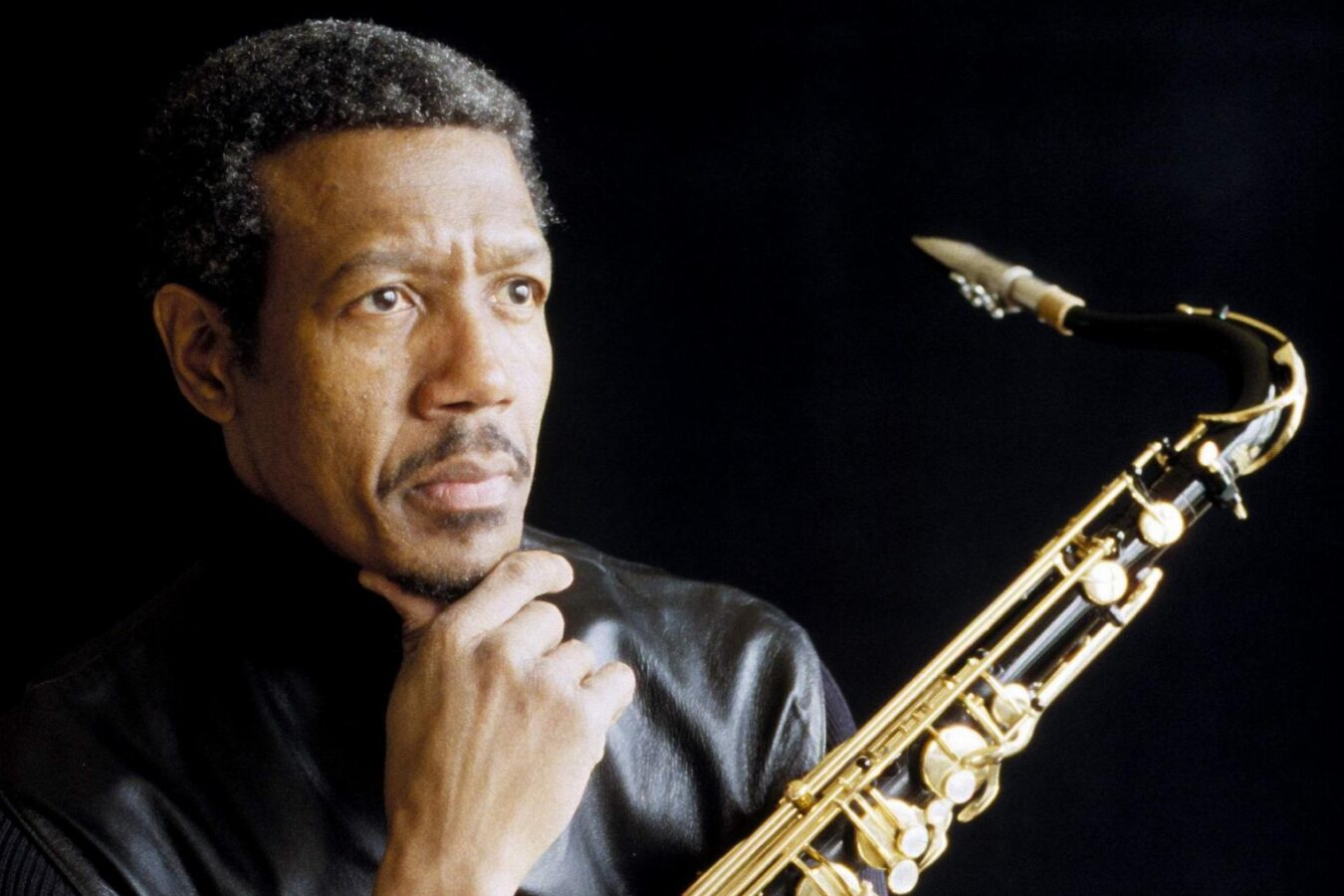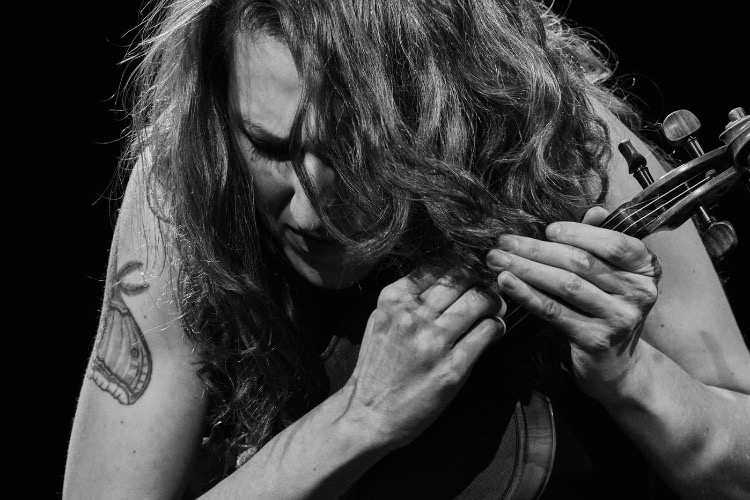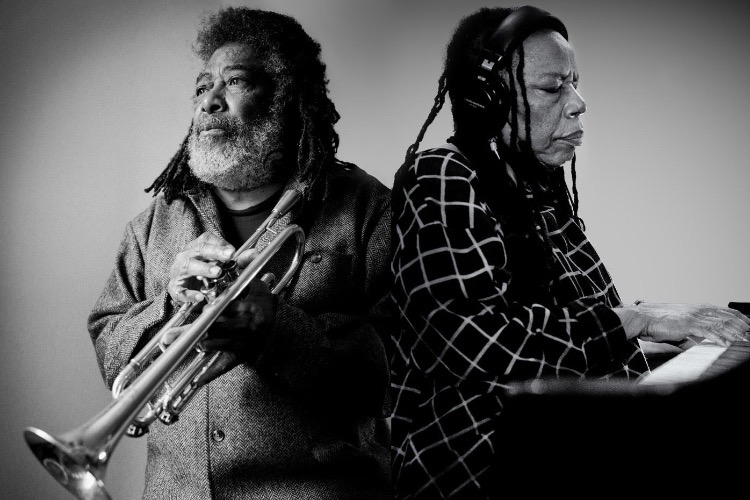Singing Through the Horn: A Conversation with Billy Harper (Part One)
|
Getting your Trinity Audio player ready...
|
The lineage of jazz has long drawn upon ideas from gospel music, whether Louis Armstrong’s presentation of spirituals or Duke Ellington’s or Mary Lou Williams’ sacred music compositions. However, to some, the connection between faith-based songs and contemporary improvised music seems more tenuous. Artists are more likely to find a space between jazz and hip hop than look to the church. But, as our conversation with saxophonist Billy Harper makes clear, the ties continue to run deep.
In his nearly six decades as a professional musician, Harper has worked with some of the most significant artists in the music’s contemporary history. He was a Jazz Messenger with Art Blakey, had long working relationships with Gil Evans and Max Roach, and briefly played with Elvin Jones. The saxophonist shared the stage with Lee Morgan on several occasions, including on the evening of the trumpeter’s tragic death. Harper even, as part of the Thad Jones/Mel Lewis Orchestra took part in Louis Armstrong’s final studio album. For the past decade and a half, he has played a central role in the superpowered assemblage of former sidemen known as The Cookers. And while Harper is not as big a name as some others on the same instrument, his influence on later generations has been secured; among other things, it is near impossible to hear a solo by Kamasi Washington without sensing the elder’s contributions.
Given Harper’s bona fides as a saxophonist, it may be surprising to hear that he seems to view its bamboo, rubber, metal, and cork as mere components. His horn is primarily a way for him to sing as he had done in the church choir as a boy. The soulfulness, joy, and mourning one can hear in his solos come as much from doxology as the prominent artists he has worked with during his career. The connection to the gospel music of his youth continues to guide his music, even as the influences of greats like John Coltrane provide some new lyrics to add to the hymnal.
Soon Harper will turn eighty, a milestone celebrated by a series of performances at SMOKE Jazz Club in New York as part of the tenth annual Coltrane festival. In the first half of our conversation with him, we discuss the significance of turning eighty, his views on the saxophone, and his musical development as a youth in Houston, Texas.
PostGenre: You have a few performances coming up at SMOKE Jazz Club, which are partly to celebrate your eightieth birthday. What does it mean to you to be turning eighty? Do you put much significance into age?
Billy Harper: No, not really. I feel like I am still on top of my life’s work. When I think about eighty years, that is a big number. In my head, I am a long way away from that.
PG: Your performances will be with a quintet featuring Billy Hart on drums. You are also in the Cookers together. What is it about Hart’s sense of rhythm that most resonates with your musical ideas?
BH: Well, for one thing, we have been playing together off and on for a very long time. Even when I first got to New York in 1966 and tried to get a group together, I played with him. His approach is incredibly flexible, and I’ve found playing with him to be very comfortable.
PG: Hart is just one of many great drummers you have worked with over the years. You have also worked with Art Blakey, Max Roach, and Elvin Jones.
BH: Right.
PG: Another drummer that should be added to that list is Andrew Cyrille. You had a few duo performances this past May with him in Austin and Houston. How did those performances come together and do you plan to do more with him?
BH: [Andrew] does many duo things like that, and the idea came from him. I generally like playing with my group more than doing duo performances. As far as future performances together, we will see.
PG: In terms of your work with drummers more generally, do you see a connection between those experiences and your meditative practices? Some people who meditate seem to emphasize the rhythmicality of their meditative practices.
BH: I think there’s a certain kind of feeling that comes from the drum. It needs to be played with a certain kind of energy for the instrument to feel alive. I can see a connection between that and meditative practices.
PG: The performances at SMOKE are also part of the Coltrane Festival. It seems many musicians, particularly tenor saxophonists, felt a need to mirror Trane’s approach after his death. But you forged your own voice on the horn and seem to have stayed true to it. Was it difficult to escape Coltrane’s shadow back in the late 1960s and 1970s?
BH: It wasn’t that difficult because I didn’t concern myself with how Coltrane got through his way of sharing his message. My focus was primarily to approach the music as if I were a singer. I hear the music that way because I started as a singer. I don’t think Coltrane approached music with that idea.
PG: So, though you are both spiritually minded, you do not feel a particular connection to the more spiritual work Coltrane made during his lifetime?
BH: I think that connects our work in a way. But I feel a lot of the spirit and feeling of what I’m doing comes from being raised in the church more than anyone else’s music.
PG: How do you feel that starting as a vocalist in church choirs as you were growing up in Houston changed your approach to the horn compared to someone who did not have that background?
BH: The instrumentalist I am now is in huge part due to my singing. In some ways, I am a vocalist on a horn. Even now, sometimes when I’m playing, I’m thinking of singing. I don’t see it so much as a horn as singing. I can play a lot faster on the horn than I can think about the music, and it sometimes feels like I’m singing a melody.
PG: Do you ever wish you had done more with singing itself, possibly releasing albums as a vocalist?
BH: No. When I worked at the New School, I had the opportunity to do some more with vocals, but it seems more natural to me to express myself on my horn. I feel like I am supposed to be putting more energy into the instrument, and then pretty soon I hear the horn itself sound like vocals.
PG: You have also recorded with choirs, as on Billy Harper in Concert: Live from Poland (Arkadia, 2007). Do you approach the saxophone differently in those circumstances so as to better distinguish it from the vocals?
BH: Oh no, no, no. Working with a choir makes me feel more like I’m still just a choir boy singing again. I don’t change how I approach the horn at all.
PG: Many great improvising musicians have come out of Houston, both before your time and currently. But Houston is often less frequently discussed as a great “jazz” city. Why do you think that is?
BH: Well, I think it is mostly because many of the great musicians in Houston ended up leaving to go somewhere else. They were playing with some big-name musicians all over Texas and ultimately reached a point in their careers where they felt like it was time to go elsewhere. When I went to school up towards Dallas [ed. Harper earned his Bachelor of Music Degree from the University of North Texas – then known as North Texas State University- in Denton] I was also around some great musicians, and many of them left the state to pursue other opportunities.
PG: In 1964, you joined the University’s acclaimed One O’Clock Big Band. Actually, you were the first Black artist in the group.
BH: Yes, I practiced so much in those days. People used to think I was going to go crazy due to how much I practiced. But I have always put my standard up very high and have always tried reaching for the top. Getting to that top level of playing takes a lot of work.
PG: Do you practice a lot even now?
BH: I still practice but not a lot. Since then, I’ve played with such great musicians that many things feel natural now. The experience of playing with guys like [Art] Blakey, Max [Roach], Randy [Weston], and others felt like going to church. They’ve brought me to a very serious place that has allowed me to express serious music more naturally.
In Part Two of our Conversation with Harper, we cover Harper’s compositional process, his works with Gil Evans and Lee Morgan, his 1970s recordings under his own name, and more.
Billy Harper’s 80th Birthday Celebration will take place at SMOKE Jazz Club in New York from January 5, 2023 to January 8, 2023. His group for the shows will include Josh Evans, Benito Gonzales, Lonnie Plaxico, and Billy Hart. More information on the concerts can be found here.
More information on Harper can be found on his website.




2 thoughts on “Singing Through the Horn: A Conversation with Billy Harper (Part One)”